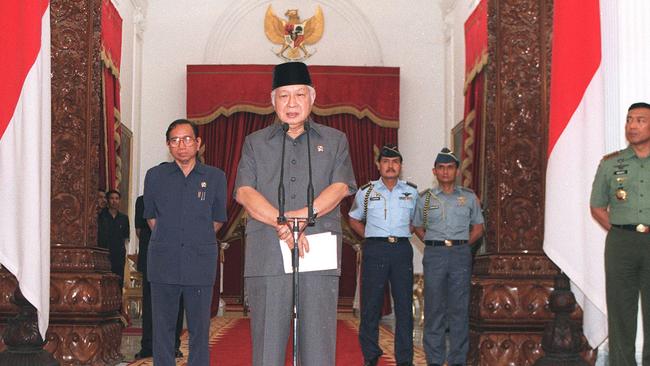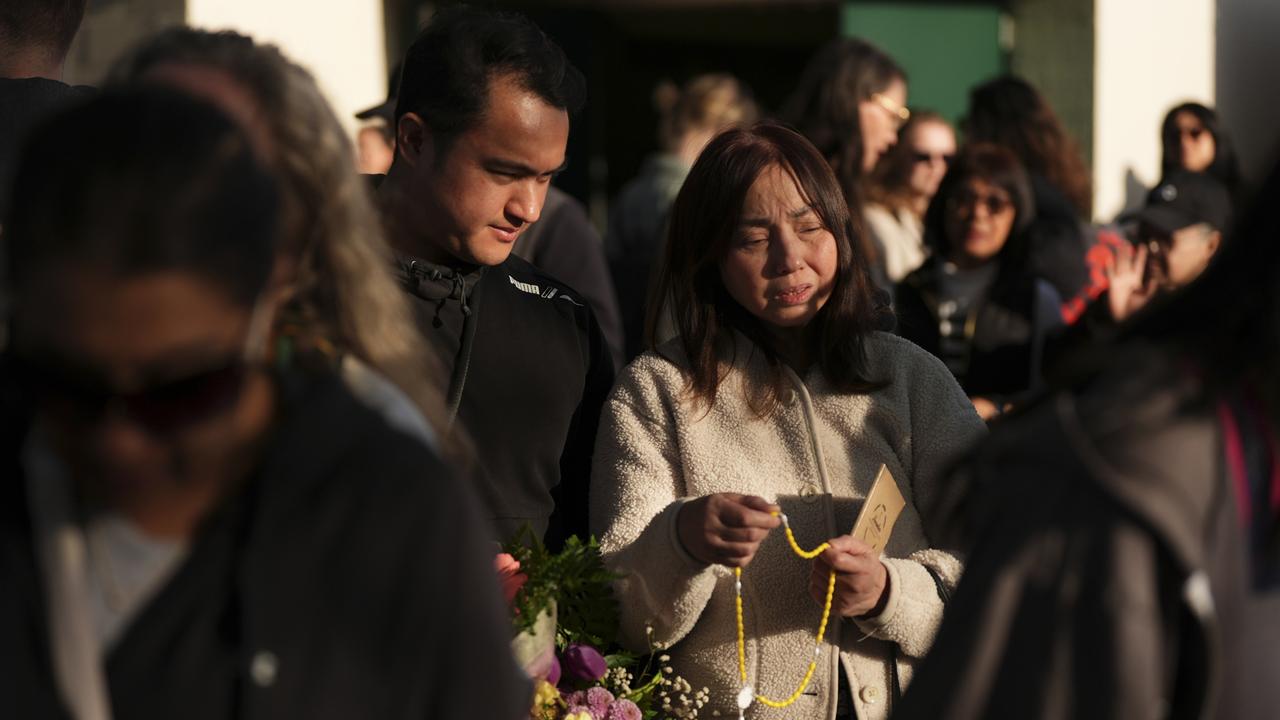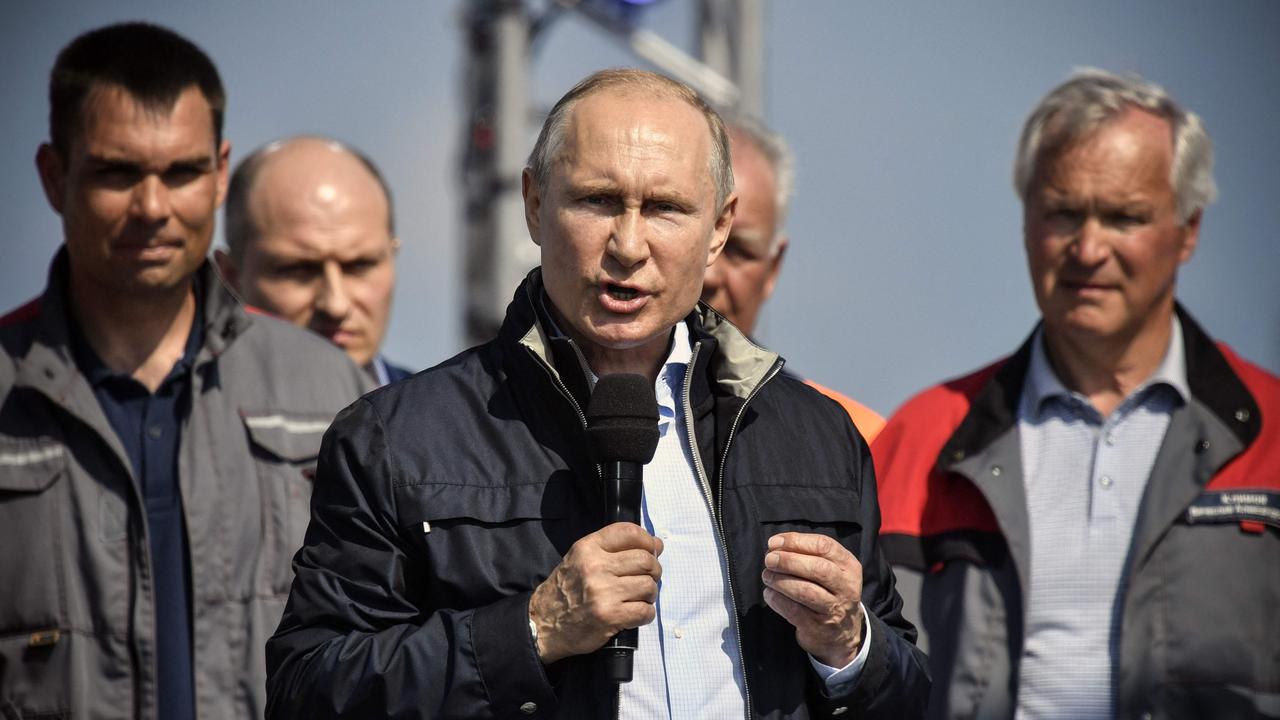Coronavirus: Ghosts of Suharto rub raw nerve in crisis response in Indonesia
As COVID-19 infection rates have soared across Indonesia, soldiers help the government and police maintain public health ‘discipline’.

As COVID-19 infection rates have soared across Indonesia, soldiers have streamed out of barracks to help the civilian government and police force maintain public health “discipline”.
Leaving aside the novelty of deploying intelligence agents to Bali to help locals and tourists understand their role in stemming infection, the heightened street presence of uniformed military during the pandemic is not peculiar to Indonesia.
The Australian Defence Force has been contributing for months to pandemic control measures in Australia by supporting the repatriation of citizens, mandatory hotel quarantine arrangements, contact tracing and state and territory police border controls. Yet in Indonesia there are growing concerns about the so-called militarisation of the pandemic response.
Last weekend, the Indonesian government announced it would deploy yet more soldiers to Jakarta neighbourhoods — and those of eight other hard-hit provinces — to help police improve public understanding and compliance with regulations on mask wearing and social distancing.
The country’s total COVID-19 cases have doubled in six weeks to 248,852, with 9677 official deaths.
As each passing month brings more bad news — recession, millions of jobs lost and the region’s highest COVID-19 death rate — President Joko Widodo appears to lean more heavily on the Indonesian military (TNI) to help steer the country out of the crisis.
A serving general leads the government’s COVID-19 response team, while the army chief of staff has been appointed deputy head of the national economic recovery committee. The State Intelligence Agency is running its own swab test clinics, and jointly developing a COVID-19 drug treatment with the TNI and Airlangga University.
Former general Luhut Panjaitan’s responsibilities, already considerable as the co-ordinating minister for maritime affairs and investment, has expanded to almost every aspect of Indonesia’s pandemic response. A former military doctor and lieutenant general, Terawan Agus Putranto is the Health Minister whose early missteps — including asserting that prayer could protect from the virus — have been widely criticised.
Jokowi, as he is known, has charged Defence Minister and former presidential rival Prabowo Subianto, another retired general, with developing a national food estate in central Kalimantan to address fears of a pandemic-fuelled global food crisis. And at the beginning of the month 90,000 troops were deployed in the pandemic response.
Should Indonesians be worried about their military’s role in pandemic control? A growing number of academics, civil society and rights activists believe they should be, notwithstanding public appreciation of the military’s contribution to the response and, in particular, that of its hospitals.
It was only 22 years ago that Indonesians threw off three decades of military-dominated rule under Suharto.
A coalition of rights groups has raised concerns about rising military involvement in the enforcement of health protocols, saying the TNI is acting beyond its “role and expertise” and that its pandemic role is dangerously ill-defined.
“We know it’s normal to involve the military and other countries are doing it, like in the US and UK, but they clearly outline the number of personnel, their tasks and the limits to their role,” says Al Araf, a coalition member and director of human rights monitor Imparsial.
“The legal basis of military involvement is very weak. Because there is no clear mandate and no rule of engagement, we think this will cause problems in defining how long the military will be involved, what their tasks will be, where they will work. We don’t know the limit of their authority.”
Institute for Security and Strategic Studies director Khairul Fahmi says he is concerned about the possibility of “excessive use of force” and that the government is relying on fear rather than education to enforce compliance.
Army chief of staff Andika Perkasa defended the military’s role at the weekend, insisting it was working hard to respect boundaries. “We’re trying to help as much as we can without taking a frontline position because this falls under the auspices of our fellow police officers,” he said.
Still, there are concerns the military’s expanded civilian role could be another “new normal” in post-pandemic Indonesia.
Human Rights Watch Indonesia researcher Andreas Harsono, a former journalist who covered the fall of Suharto’s New Order regime, says the gradual expansion of the military’s role in civilian life — hastened by the pandemic — could be “difficult to undo”.
“In Australia and the US, where the military is involved, it’s easy to return them to barracks,” he said. “They have a long history of civilian-military separation; in Indonesia, it’s only 20 years old.”
Additional reporting: Chandni Vasandani




To join the conversation, please log in. Don't have an account? Register
Join the conversation, you are commenting as Logout